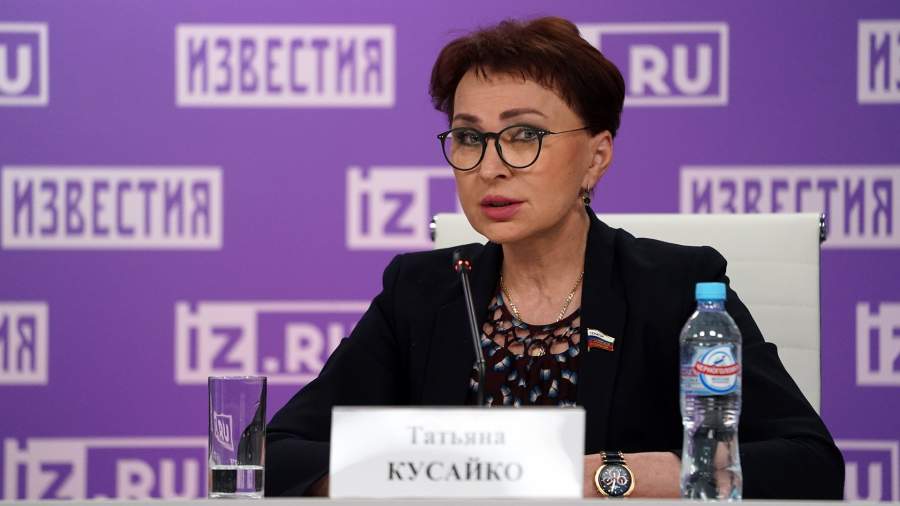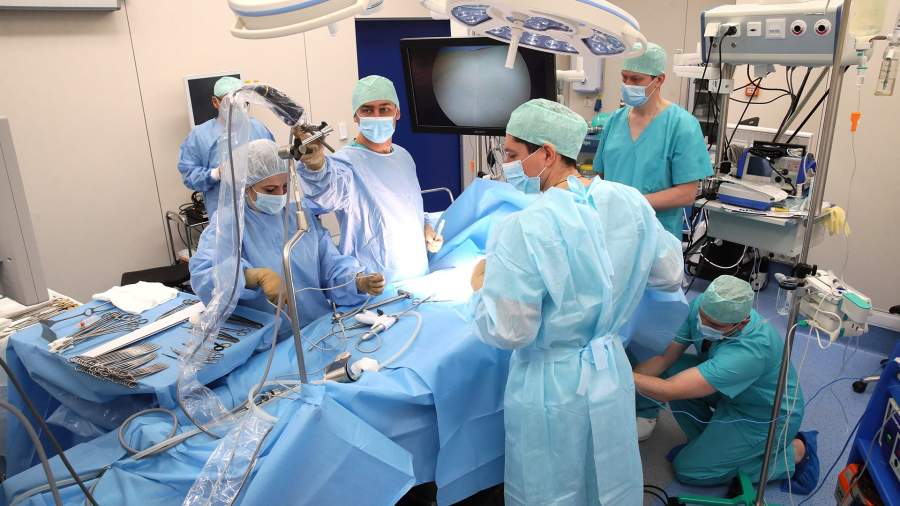Russia plans to complete the transition to a new revision of the international classification of diseases (ICD-11) in four years, the Ministry of Health told Izvestia. The previous version, ICD-10, has been in operation since 1989 and has already lagged behind the times. ICD-11, which will officially enter into force on January 1, 2022, makes it possible to better plan the treatment of diseases and their diagnosis, experts say. Details – in the material “Izvestia”.
The regiment of diseases has arrived
In accordance with the decision of the 72nd session of the World Health Assembly, which adopted a resolution on the recognition of the “International Statistical Classification of Diseases and Related Health Problems, Eleventh Revision” (ICD-11), Russia, like other countries, should make the transition to ICD- 11 until 2025, Olga Kobyakova, director of the Central Research Institute for Organization and Informatization of Healthcare of the Ministry of Health of Russia, told Izvestia.
– The roadmap for changes in the country has already been developed, currently ICD-11 is being translated from English into Russian, then it will be digitized and adapted to our healthcare system with the participation of the main freelance specialists of the Ministry of Health. At the same time, educational programs are being developed. It is assumed that the new rules for coding diseases will have to retrain 1.8 million people, – says the head of the Central Research Institute of Health. – If everyone, rolling up their sleeves, will work hard, then by 2025 we will be able to transfer the country to a new system. You need to understand that two systems will work for two years so that we do not lose the previous data.
ICD-11, according to Tatyana Kusayko, Deputy Chairman of the Federation Council Committee on Social Policy and Honored Doctor of the Russian Federation, is changing the approach to structuring information and building a digital healthcare model. Thanks to this, it can be synchronized at all levels, including at the interstate level for data comparison. “With the introduction of ICD-11, the structures of codes and electronic tools will be simplified, which will make it easier for healthcare professionals to register various diseases. The number of nosologies, code numbers, class coding and their number will change (there will be 26 instead of 21), ”Kusayko said.
The new version of the ICD adds the following classes: “Diseases of the blood and blood-forming organs”, “Immune system disorders”, “Disorders of the sleep-wake cycle”, “Diseases associated with sexual health” and an additional class for optional use. At the same time, the classes “Skin diseases”, “Developmental anomalies” and “Symptoms, signs and clinical data not attributed to other categories” have undergone significant restructuring. “Major updates include the ability to report on antimicrobial resistance, an updated HIV classification, improved coding for diabetes and allergies, and the ability to describe patient safety incidents,” explained Tatiana Kusayko.
The Senator highlighted changes in standards and descriptions related to maternal and child health. To improve the quality of data on maternal mortality and provide alternative methods for collecting data on mortality due to pregnancy, and to stimulate the recording of deaths from obstetric causes occurring more than 42 days after the end of pregnancy, two new descriptions have been added: reasons ”and“ late maternal death ”.
“In terms of recording and reporting morbidity in primary health care facilities, ICD-11 has added several broad headings to record health conditions and reasons for contacting health care facilities,” says Kusaiko. – The ICD-11 also updated the definition of the “underlying disease” as the cause of hospitalization, established at the end of the patient’s stay in the hospital.
With regard to changes in the classification of functioning, disability and health, experts note that pre- and post-treatment functional assessments are currently being used to determine the severity of cases and the resources needed, and to monitor treatment progress. The introduction of ICD-11 will qualitatively improve the assessment of functioning, experts are convinced.
For a lifetime
Our country confirmed its readiness to switch to the eleventh version of the International Classification of Diseases two years ago. The World Health Organization (WHO) has allowed all states to implement it since 2022.
As Izvestia was told in the WHO office in the Russian Federation, the value of the new ICD lies in the fact that it serves as a basis for tracking trends and maintaining statistics in the field of health care throughout the world. The new ICD contains approximately 55 thousand unique codes for injuries, diseases and causes of death.
“The preparation of the 11th version of the ICD took more than ten years, and the new version has important improvements,” a WHO representative said in an interview with Izvestia. – For the first time it comes out in a completely electronic form and has a much more convenient format for any reader. In addition, an unprecedented number of health workers contributed to its drafting through joint meetings and discussions.
According to a WHO spokesman, the latest version of the ICD allows for more efficient recording of data related to health safety and, accordingly, identification and prevention of unwanted events that can harm health, such as unsafe practices in hospitals. The new ICD also includes chapters on folk (traditional) medicine, and, for example, game disorder was added to the addictive disorders section.
The International Classification of Diseases and Related Health Problems is the cornerstone of health statistics. And the statistics collected around the world play a critical role in tracking progress towards countries’ key sustainable development goals, such as increased life expectancy., noted the vice-rector for medical work and head of the Department of Neurology and Medical Genetics of the FSBEI HE PSMU named after Academician E.A. Wagner of the Ministry of Health of Russia Yulia Karakulova.
“In a world of 7.4 billion people who speak almost 7,000 languages, the new ICD plays an extremely important role in providing a common terminological apparatus for registering and monitoring health problems and reporting,” says Yulia Karakulova.
The fact is that scientists around the world discover new diseases and conduct a large amount of research every year… ICD-11 is an important tool that allows you to understand how widespread various diseases are, what are the real causes of death of people and how and why the epidemiological situation in the countries of the world is changing, says Vladimir Krugly, a member of the Federation Council Committee on Social Policy, Honored Doctor of the Russian Federation.
The new version of the international classification is four times larger than the previous one. “In the ICD everything is coded in a certain way,” says Vladimir Krugly. – Using code makes it much easier to compare data from different hospitals and even countries… The code is the same in all countries, and the names of diseases can sound different. Overall, this revision is a huge step forward for the health of the world and our country. ” In his opinion, the fully electronic nature of the ICD-11 will reduce the number of errors in diagnosis and will allow the domestic nosological system to be brought in line with international standards.
In addition, domestic doctors will be able to communicate better and more accurately with foreign colleagues.
“If we finally switch to a unified classification system, then we will understand each other more with foreign colleagues,” says Veronika Rostorotskaya, an FFOMS expert and a member of the All-Russian Society of Cardiology. – In particular, the international diagnosis of “essential hypertension” in the Russian Federation sounds like “hypertension.” This means that foreign doctors may not understand and misinterpret this term.
“Therefore, the transition to a general world classification is simply necessary: anyway, we are already next to our diagnosis and we write the diagnosis according to the foreign classification of the same heart failure,” the practitioner clarified.
Underwater money
One of the pitfalls in the introduction of ICD-11 may be that doctors will have to undergo additional training on the principles of coding in the new system, noted the leading specialist of the N.N. N.N. Petrova in St. Petersburg Yuri Komarov.
– The transition to ICD-11 will require changes in medical information systems – these will be the direct costs of its implementation, – says Yuri Komarov.
For the introduction of ICD-11 throughout the country, they note in the Russian Medical Academy of Postgraduate Education (RMAPO) under the Ministry of Health, the costs will be serious. In addition, difficulties will be caused by the lack of unification of software products used in medical institutions in different regions of Russia.
– The Russian Federation needs a unified health care system. A simple example: a doctor from Novosibirsk moves to Kemerovo, and he is under stress until he masters the “local” rules of diagnosis. And it takes months of adaptation. That is, in emergency situations, any mobile teams of doctors sent to other regions will face problems in making diagnoses. This was shown by the situation with the coronavirus. To make a diagnosis “correct” for a particular region, a doctor needs to get a job in the staff of a local medical institution. Accordingly, without this, he cannot encrypt (clarify) the diagnosis. That is, despite the fact that the new ICD-11 will certainly bring with it a more accurate diagnosis of human diseases, in the regions there may be problems with its implementation in local diagnostic systems, the experts of RMAPO point out.




